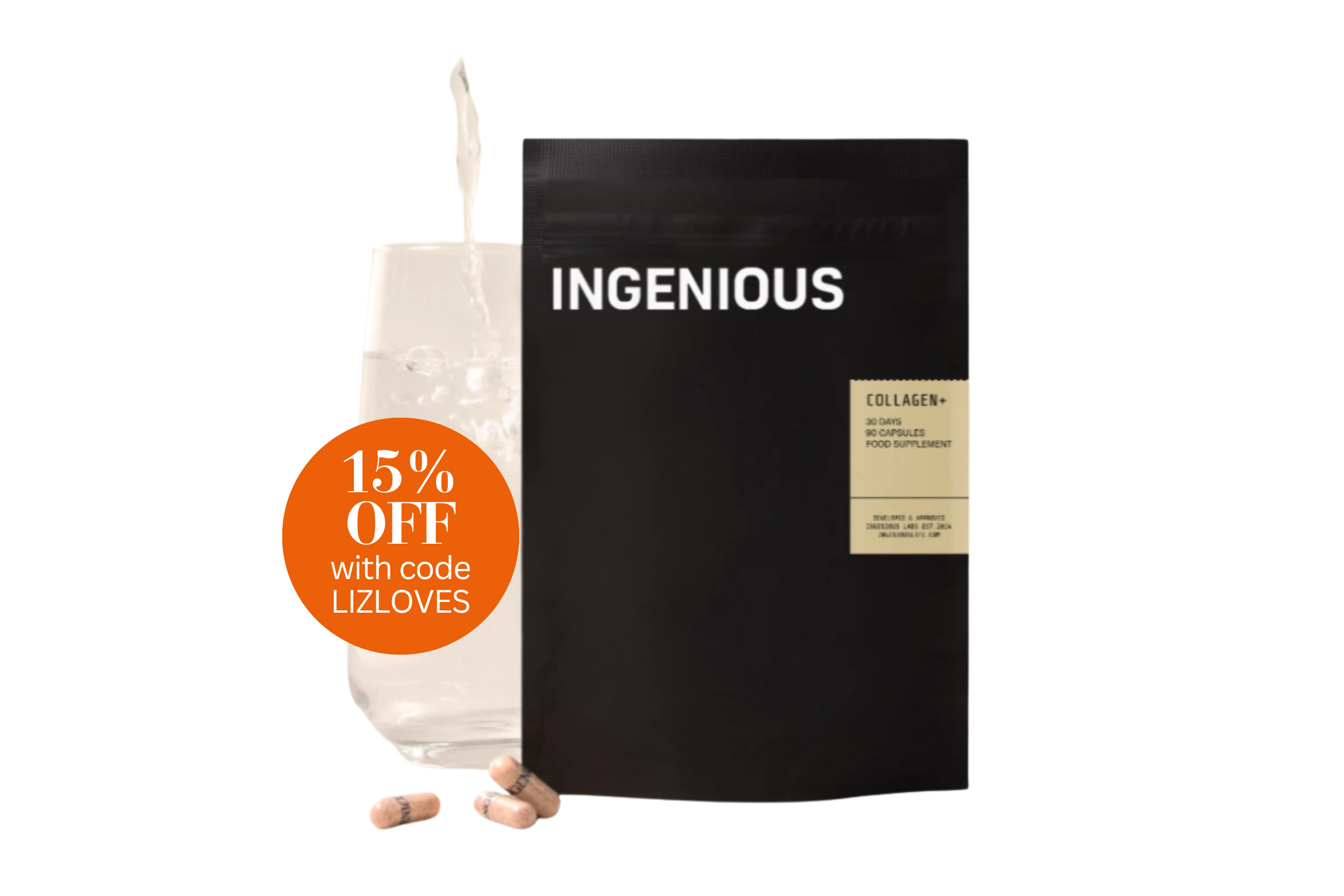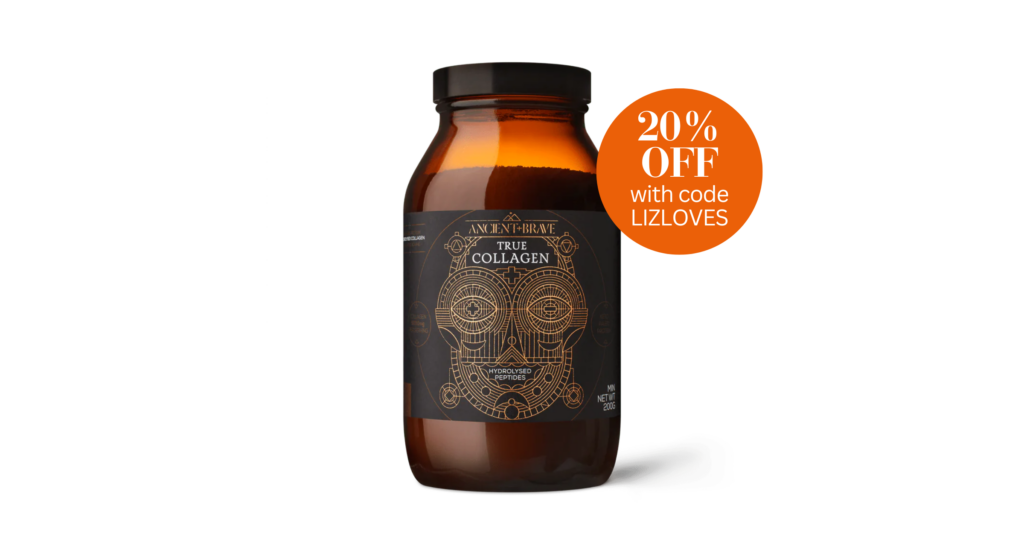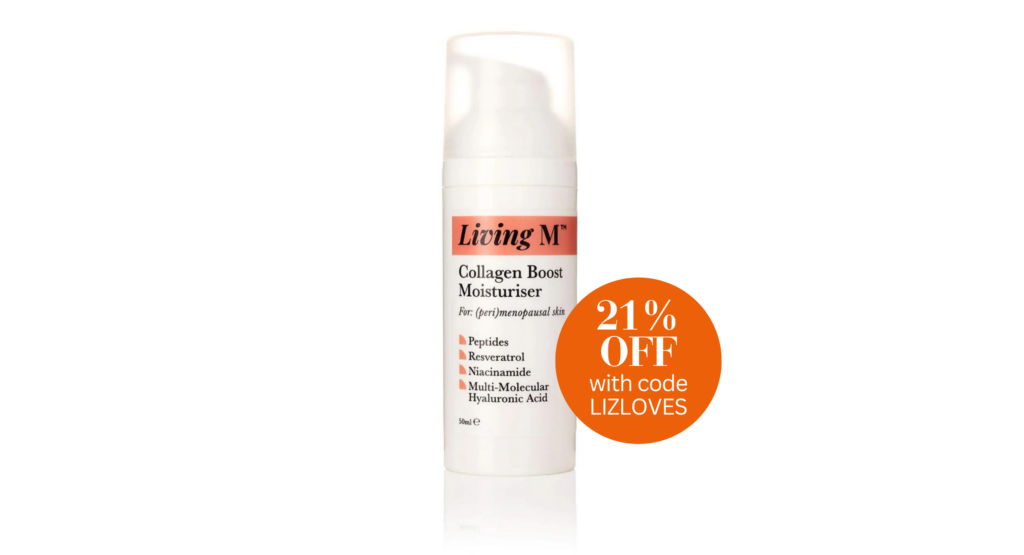Healthy Skin
What is collagen and how can we get more?
Collagen supplements have boomed in popularity in recent years, promising to restore youthful elasticity to skin, strengthen joints and soothe our guts.
But, with so many wellness hacks jostling for our attention, does this supplement truly deserve a place in our midlife stack? We investigate.
What is collagen?
Collagen is the most abundant protein in the human body. We find it everywhere — from our skin to our bones, cartilage and tendons. It’s the flexible but resilient ‘scaffolding’ that holds our tissue together and is essential for skin elasticity, healthy hair, nails, muscles and bones.
What happens as we get older?
We can make collagen ourselves from the protein in our diet. Foods such as eggs, meat, fish and beans contain protein building blocks called amino acids, which our bodies can convert into collagen.
But, we become less and less efficient at making collagen from amino acids as we age. From our mid-twenties onwards, we start to lose collagen at a rate of about 1.5% per year. By the time we’re in our forties, we may have lost around thirty percent of our original supply. This is one of the reasons why our skin starts to lose its elasticity and tone.
Why do we need collagen?
Collagen is often touted as a beauty supplement and for good reason: a 2023 systematic review of 26 studies found that supplementing collagen peptides is associated with consistent improvements in skin hydration and elasticity. Plus, while there’s scant research to back up these anecdotal claims, many women also report improvements to the strength of hair and nails.
But the perks don’t end there. Research shows that this all-important protein can deliver whole-body benefits, fortifying joint health, digestive wellness, muscle mass and bone strength.
A recent study found that supplement 10g of collagen peptides twice a day over a period of eight weeks resulted in improvements in digestion, bloating and abdominal comfort in the study participants. The symptom relief is thought to be thanks to amino acids that can help to reinforce the gut lining.
Another study took 102 postmenopausal women with reduced bone mineral density. They found that taking just 5g of collagen peptides daily for a year resulted in significantly stronger bones.
Small studies even suggest that supplementing this protein may offer benefits for heart health by supporting healthy blood vessels and circulation.
How can we get more?
Eating a diet rich in protein is a great place to start as this ensures our body has everything it needs to make collagen. Foods such as meat, fish, dairy, eggs, tofu and pulses are rich in protein, as are Liz’s homemade gummies.
But, as we’ve established, our body’s ability to convert dietary protein into collagen declines with age. This means supplements can offer additional benefit, though picking the correct formula is key. Look out for supplements that contain hydrolysed collagen as this means the molecules have been broken down into smaller pieces (peptides) that can be absorbed by the body.
If it’s beauty benefits we’re after, it’s best to steer clear of collagen skincare creams as collagen molecules are far too large to be absorbed by skin. A more effective strategy is looking for serums and creams that contain collagen-boosting ingredients. These include vitamin C, peptides, retinol and resveratrol.
Research also suggests exercise can help to stimulate production by giving the metabolism of our skin cells a boost. All the more reason to get moving!
The best collagen supplements for midlife
Ancient + Brave True Collagen
Easily digestible, highly absorbable and clinically researched Type 1 hydrolysed bovine collagen peptides. This powder is tasteless, odourless and easy to mix into hot or cold drinks, as well as smoothies, soups or stews. Use code LIZLOVES for 20% off.
Ingenious Beauty
Serious about future-proofing your skin? Try this luxury supplement that combines highly absorbable peptides with hyaluronic acid and astaxanthin – a super antioxidant. It’s been shown to reduce fine lines and wrinkles, replenish skin hydration and improve skin’s elasticity and radiance in clinical trials. Use code LIZLOVES for 15% off.

Living M Collagen Boost Moisturiser
Designed with menopausal skin in mind, this cream packs the combined power of peptides and resveratrol to target the visible signs of ageing. Use code LIZLOVES for 21% off.
Loved this? Read on here
Please note, on some occasions, we earn revenue if you click the links and buy the products, but we never allow this to bias our coverage and always honestly review. For more information please read our Affiliate Policy.







